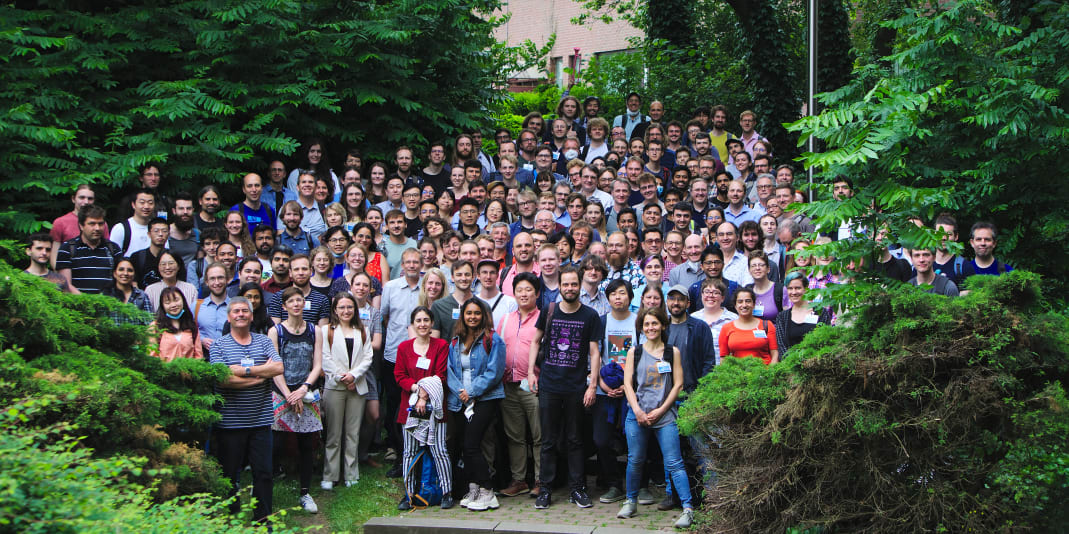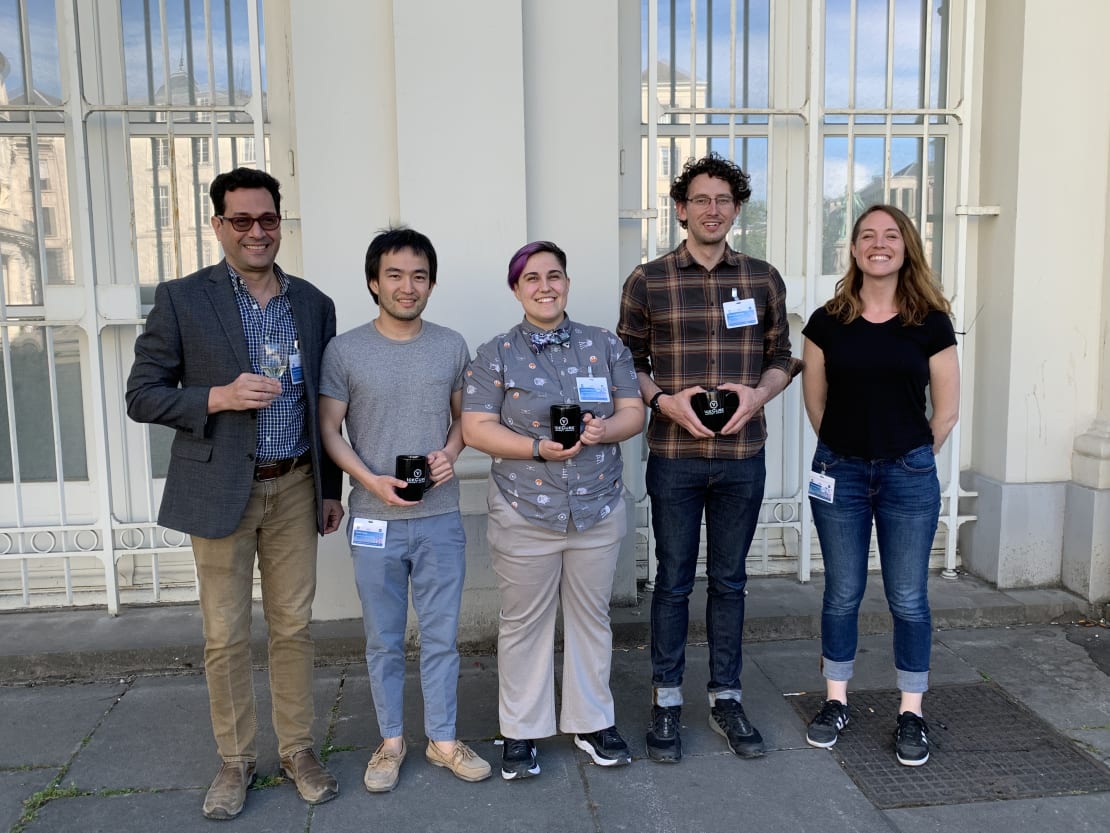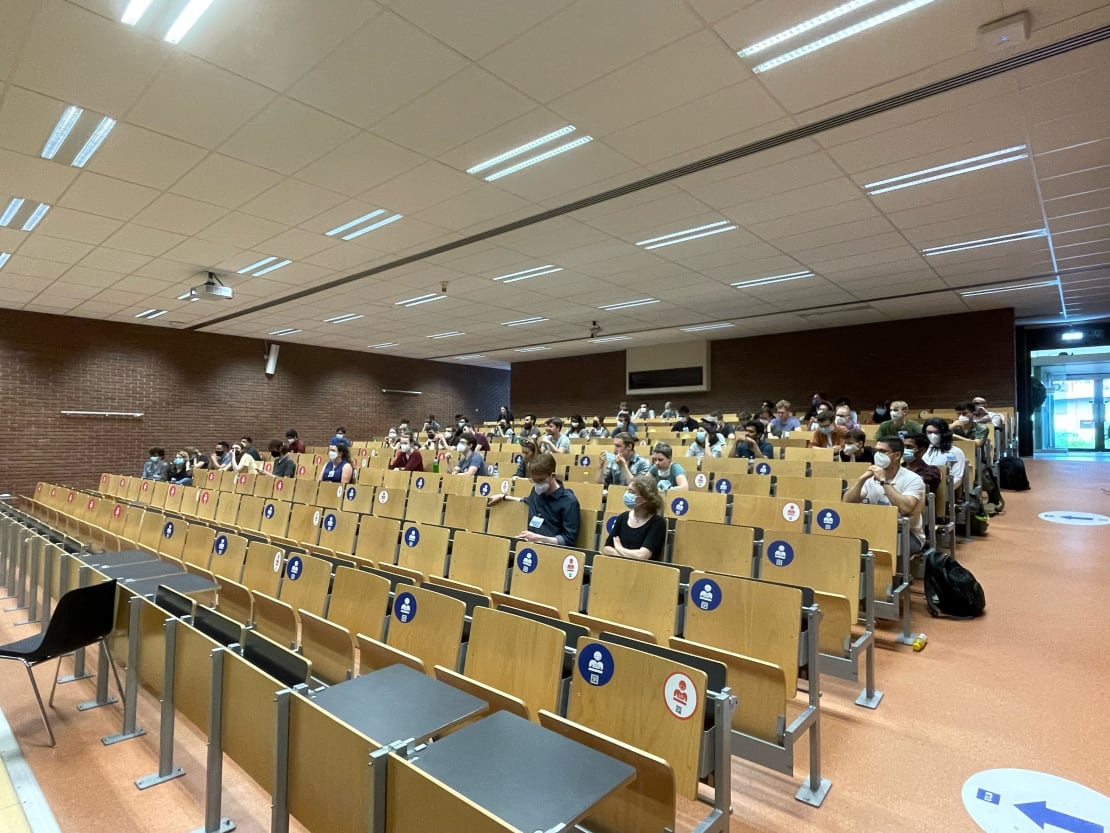
For the first time since 2019, the spring collaboration meeting was held in person last week from May 16–20. The in-person meeting took place at both the Fine Arts Museum and the Plaine campus of the Université libre de Bruxelles (ULB) in Brussels, Belgium. A total of 225 participants, including those who joined remotely, registered for the semiannual meeting. All the sessions were livestreamed to accommodate those who could not attend in person.
“The organization of this meeting was particularly challenging. Rules were changing every other week following the evolution of the COVID-19 pandemic, so it was difficult to foresee what the situation would be at the time of the meeting,” said Simona Toscano, a researcher at the ULB and one of the local co-organizers. “We tried to adapt and took some risks, but in the end, we’re happy that we made it happen.”
The meeting kicked off on Monday, May 16, with a full day devoted to IceCube-Gen2 updates. Throughout the rest of the week, discussions and presentations covered a range of IceCube topics, including the latest updates on the IceCube Upgrade, software, calibration, and results and analyses on neutrino oscillations, neturino sources, and cosmic rays. A special session was also held to honor two former colleagues, the late Buford Price and Thomas Gaisser.
On Day 2, the results of the ninth edition of the IceCube Impact Awards were announced at the welcome reception and awards ceremony. The IceCube Impact Awards, established in 2018, recognize broad and significant contributions to IceCube that are normally not acknowledged through its scientific publications. Recipients were chosen based on nominations from IceCube collaborators.
The awardees for spring 2022 are Jessie Micallef (Michigan State University), Thomas McElroy (University of Alberta), Tianlu Yuan (University of Wisconsin–Madison), and Serap Tilav (Bartol Research Institute at the University of Delaware), who is the recipient of the IceCube Legacy Impact Award. During the ceremony, IceCube spokesperson Ignacio Taboada gave each recipient a certificate and mug to commemorate their achievements.

But not everything was about science.
There were plenty of opportunities for community building, including a meetup for LGBTQ+ collaborators and allies, a get-together for women and gender minorities, a lunch for early career scientists, and board game sessions at the local board game café. Finally, the meeting concluded on Friday, May 20, with guided tours at the Magritte Museum.

“It was really good to meet everyone in person after such a long time, and I was delighted to see many new faces,” said Nick van Eijndhoven, a professor of physics at the Vrije Universiteit Brussel and one of the local co-organizers. “In my perception, the meeting was very constructive and went very well, and the weather gods have done their best—apart from some occasional thunderstorms, but yeah, it’s Belgium.”
According to van Eijndhoven, many of the participants also enjoyed the Belgian cuisine and especially the local beer. Meeting aside, many of the collaborators were just happy to see people face-to-face again.
The next collaboration meeting will take place on September 18-23 in Madison, Wisconsin, USA.